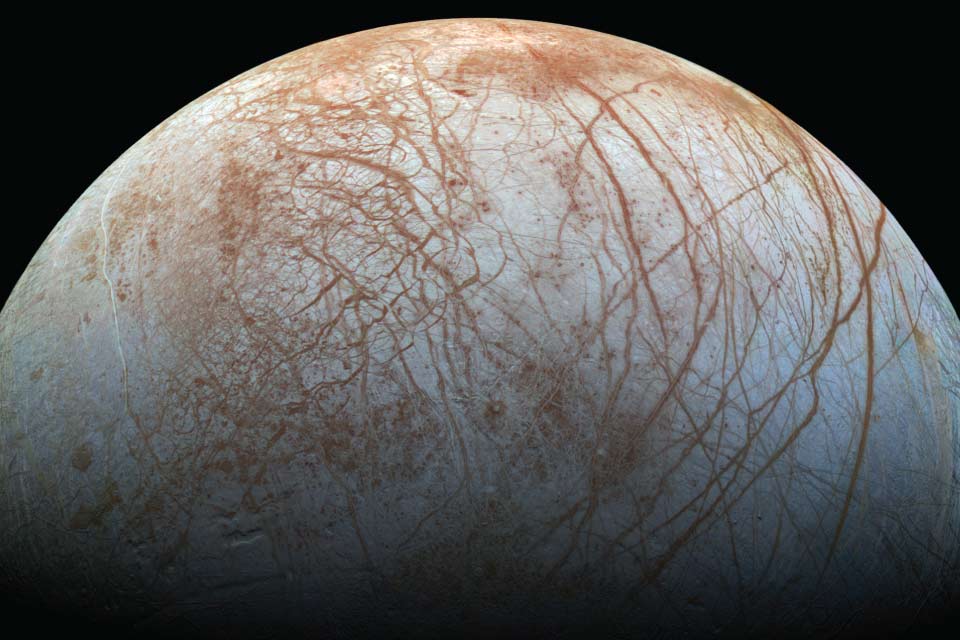Are there oceans on other planets?
Scientists believe many planets and moons have subsurface oceans.

Europa may have subsurface liquid water. Scientists hypothesize that Europa's hidden ocean is salty, tidal, and causes its ice surface to move, resulting in large fractures that are clearly visible. Although Europa lies outside of our solar system's habitable zone, it may have the ingredients needed to support life — water, energy, and organic compounds. (Image Credit: NASA/JPL/Ted Stryk).
Evidence points to oceans on other planets and moons, even within our own solar system. But Earth is the only known planet (or moon) to have consistent, stable bodies of liquid water on its surface. In our solar system, Earth orbits around the sun in an area called the habitable zone. The temperature within this zone, along with an ample amount of atmospheric pressure, allow water to be liquid for long periods of time.
Scientists believe several moons within our solar system have significant subsurface liquid water deposits. Saturn’s moon Enceladus and Jupiter’s moon Europa are two examples. Both appear to have salty, liquid oceans covered with thick layers of ice at the surface. Scientists have observed water plumes erupting from Enceladus, and believe similar plumes can be found on Europa. The existence of these geysers also tells scientists that these moons have a source of energy, perhaps from gravitational forces or radiation — energy that keeps the oceans liquid under the ice and could even support life.
Beyond our solar system, scientists have found thousands of exoplanets — planets that orbit other stars — including some in the habitable zone. Using mathematical models, researchers estimate that more than a quarter of known exoplanets may have liquid water, though the majority would have subsurface oceans like those on Europa and Enceladus.
The search for liquid water is critical to the search for life beyond Earth. While scientists originally focused the search on finding planets with liquid water on their surface, that thinking is changing. Here on Earth, we have examples of life flourishing in some of the most extreme conditions, such as the complex ecosystems around hydrothermal vents on the seafloor. Scientists are reconsidering whether life could exist below an icy surface, even within our solar system on moons like Europa and Enceladus.
Social